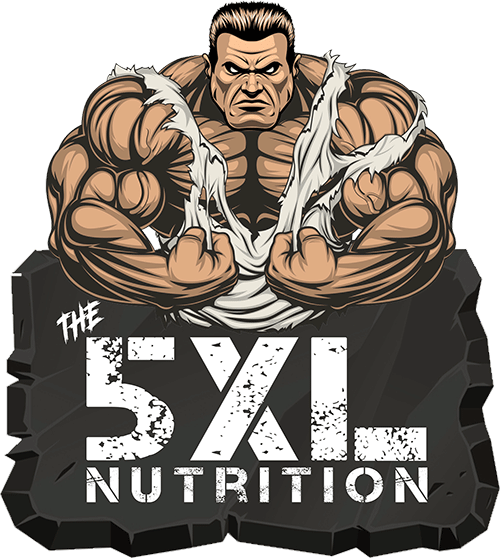EAA vs BCAA: Which is Better?
In the world of fitness and supplementation, few topics spark as much debate as EAA vs BCAA. Both Essential Amino Acids (EAA) and Branched-Chain Amino Acids (BCAA) are popular choices among athletes and bodybuilders. But when it comes to real results—muscle growth, recovery, and performance—which one should you choose? Let’s break it down so you can make the best decision for your fitness journey.
What Are BCAAs?
BCAAs stand for Branched-Chain Amino Acids, which include three essential amino acids:
- Leucine
- Isoleucine
- Valine
These three amino acids are especially important for muscle protein synthesis, energy production, and recovery. Among them, Leucine plays the biggest role in triggering the process that builds new muscle tissue.
BCAA supplements became extremely popular because they’re simple, taste good, and are marketed as the ultimate workout recovery solution. However, science shows they have certain limitations when used alone.
What Are EAAs?
EAAs are Essential Amino Acids, which means your body cannot produce them on its own—they must come from food or supplements. There are nine EAAs, and they include all three BCAAs along with six additional amino acids:
- Leucine
- Isoleucine
- Valine
- Histidine
- Lysine
- Methionine
- Phenylalanine
- Threonine
- Tryptophan
Unlike BCAAs, EAAs provide the complete spectrum of amino acids required to fully trigger muscle protein synthesis. Without the other six amino acids, your body cannot effectively use BCAAs to build or repair muscle tissue.
Key Differences Between EAA and BCAA
- Muscle Growth
- BCAA: Helps start the muscle-building process but cannot complete it alone.
- EAA: Provides all nine essential amino acids, allowing complete muscle protein synthesis.
- Recovery
- BCAA: Reduces soreness and fatigue but may leave gaps in recovery.
- EAA: Supports full recovery, reducing muscle breakdown while aiding repair and growth.
- Performance
- BCAA: Provides energy during workouts by reducing muscle breakdown.
- EAA: Enhances stamina, energy, and reduces fatigue while giving your body what it needs for long-term muscle growth.
- Nutritional Value
- BCAA: Incomplete on its own.
- EAA: Complete amino acid profile, closer to natural protein sources.
EAA vs BCAA: Which Is Better?
If your goal is serious muscle growth, recovery, and long-term performance, EAA clearly wins. Think of BCAAs as a shortcut—they help but don’t provide everything your body needs. EAAs are like a full meal, offering the complete nutritional package for your muscles.
Many experts believe BCAAs can still be useful as an intra-workout drink to reduce fatigue, but when it comes to building muscle, EAAs outperform them. If you’re investing in supplements, EAAs give you better value and better results.
When to Use EAAs and BCAAs
- BCAA:
Best during workouts for quick energy and to reduce fatigue, especially if you already consume enough protein daily. - EAA:
Best anytime—before, during, or after workouts—because they provide the full amino acid profile your body needs to build and repair muscle. Also excellent if you’re fasting or following a plant-based diet, where amino acid intake may be lower.
Scientific Backing
Studies show that while BCAAs can stimulate muscle protein synthesis, the process cannot continue without the other six EAAs. In contrast, EAAs alone are enough to maximize protein synthesis and muscle repair. This is why most modern sports nutritionists recommend EAA supplements over BCAAs.
FAQs About EAA vs BCAA
1. Are BCAAs useless?
No, BCAAs are not useless. They are effective for reducing workout fatigue and muscle soreness. But for muscle growth, EAAs are much more effective.
2. Can I take both EAAs and BCAAs?
Yes, but it’s not necessary. Since EAAs already contain BCAAs, you get the benefit of both in one supplement.
3. Are EAAs better for vegetarians and vegans?
Absolutely. EAAs ensure complete amino acid intake, which can sometimes be lacking in plant-based diets.
Conclusion
When comparing EAA vs BCAA, the winner is clear. EAA supplements are superior because they provide the complete amino acid profile your muscles need for growth, recovery, and performance. BCAAs may still help reduce fatigue and soreness, but they can’t match the full benefits of EAAs.
If you’re serious about results, choose EAA supplements for long-term gains. For quick intra-workout support, BCAAs can be an add-on, but they should never replace EAAs or a complete protein source.
At 5XL Nutrition, our EAA supplement is designed with the ideal amino acid ratio to fuel your workouts, protect your muscles, and accelerate recovery. If you want the best results, EAAs are the smarter choice for your fitness routine.
